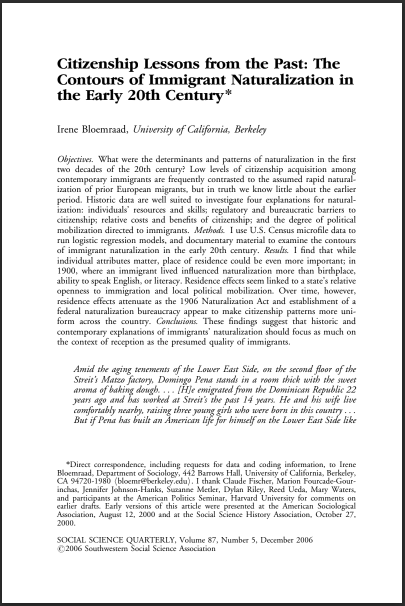
Naturalization
Nationality, i.e., the legal bond between an individual and a state, guarantees individual protection and civil and political rights (International Court of Justice, 1955). This legal bond comes about through birth or naturalization. The concession of nationality to a foreigner by a state is a formal act at the individual’s request. International law does not set specific rules for naturalization, and it is up to each state to determine the naturalization process through legislation, provided that this is in accordance with international conventions, international customs, and generally recognized principles of law on nationality (IOM, 2009).
According to Lagarde (Dolinger, 2005), “nationality has two dimensions. The vertical dimension that establishes the link between the individual and the state to which he belongs, [ …] which includes a series of obligations on the part of the individual towards the state (e.g., loyalty, military service, etc.), with the counterpart of diplomatic protection that the state extends to the individual wherever he is abroad. This is the legal-political dimension. And the other dimension is the horizontal dimension, making the national a member of a community, of the population that makes up the state. This is the sociological dimension.”
Our Library contains various resources (introductory readings, books, and texts) on the topic of Naturalization.

Brasileiros são o Maior Número de Cidadãos Naturalizados em Massachusetts
Metropolitan Brazilian News, 2012.
Precisa de uma descrição aqui.

Citizenship Lessons from the Past: The Contours of Immigrant Naturalization in the Early 20th Century
Irene Bloemraad, 2006.
Precisa de uma descrição aqui.

